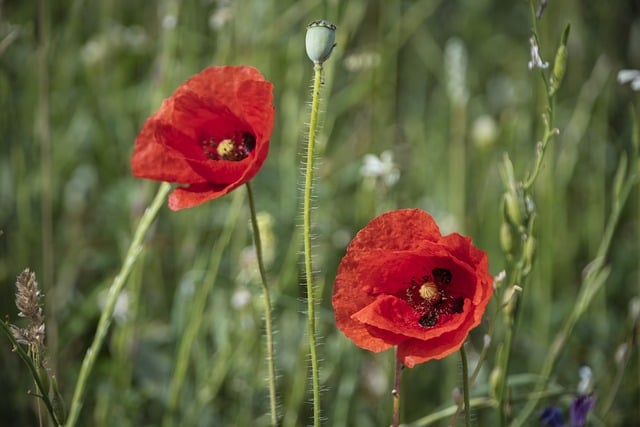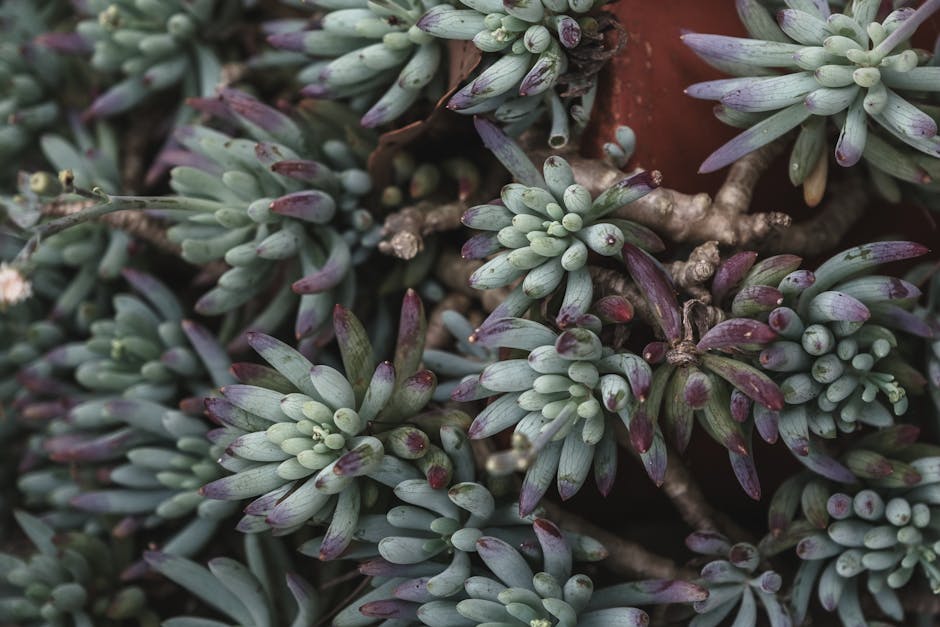Step into your garden and you’ll hear the gentle hum of life all around you. But, as any green-thumbed enthusiast knows, not all buzzing is welcome. Pesky garden pests can wreak havoc on our carefully tended plants, leaving us feeling frustrated and defeated. But fear not! There are organic solutions to help you combat these critters and keep your garden buzzing with life in all the right ways. Let’s dive into the world of natural pest control and discover how you can protect your plants while keeping the environment happy and healthy.
Table of Contents
- 1. Say goodbye to pesky pests: Organic solutions for a thriving garden!
- 2. Nature’s little helpers: How to keep your garden buzzing with life.
- 3. From ladybugs to lacewings: Meet the superheroes of organic pest control.
- 4. A feast for the senses: Creating a garden paradise with natural pest solutions.
- 5. Embrace the buzz: Eco-friendly tips for a pest-free garden oasis.
- Q and A

1. Say goodbye to pesky pests: Organic solutions for a thriving garden!
Are annoying pests ruining your garden oasis? Have no fear, because there are plenty of organic solutions to help your plants thrive! Say goodbye to those pesky bugs and critters with these natural remedies that will keep your garden looking beautiful and bountiful.
One of the best ways to ward off pests is by planting companion plants that repel them. Consider adding marigolds, basil, or lavender to your garden to deter insects like aphids, beetles, and mosquitoes. These colorful and fragrant plants not only add beauty to your garden but also act as natural pest repellents, keeping your plants safe and healthy.
Another effective organic solution is to make your own DIY insect repellent spray using ingredients like garlic, neem oil, and hot pepper. Simply mix these ingredients with water and coat your plants to keep bugs at bay. Not only is this method safe for your plants and the environment, but it’s also a cost-effective way to protect your garden from pesky pests.

2. Nature’s little helpers: How to keep your garden buzzing with life
Whether you’re a seasoned gardener or just starting out, creating a buzzing ecosystem in your garden is easier than you might think! By inviting nature’s little helpers into your garden, you can ensure a healthy and thriving environment for your plants to flourish.
One way to attract beneficial insects such as bees, butterflies, and ladybugs is by planting a variety of flowers. **Colorful blooms** like lavender, sunflowers, and daisies are not only visually appealing but also provide a crucial food source for these pollinators. Consider adding a mix of annuals and perennials to keep your garden blooming all season long.
Another way to encourage biodiversity in your garden is by creating habitats for beneficial insects. **Bug hotels** made from natural materials like logs, twigs, and leaves provide shelter for insects to nest and hibernate. Additionally, installing a small water feature or bird bath can attract birds and other wildlife that will help control pest populations.
3. From ladybugs to lacewings: Meet the superheroes of organic pest control
When it comes to organic pest control, ladybugs and lacewings are the unsung heroes of the garden! These tiny insects may seem insignificant, but they pack a powerful punch when it comes to keeping pesky pests at bay.
Ladybugs: These adorable red and black beetles are nature’s own pest control squad. They have a voracious appetite for aphids, mealybugs, and other destructive pests that can wreak havoc on your plants. Just one ladybug can devour up to 5,000 aphids in its lifetime!
Lacewings: With their delicate green wings and feathery antennae, lacewings may look dainty, but they are fierce predators in the garden. The larvae of lacewings are especially effective at controlling pests like caterpillars, thrips, and mites. These little warriors can make quick work of even the most stubborn infestations, leaving your plants unharmed and thriving.
4. A feast for the senses: Creating a garden paradise with natural pest solutions
Escape to your very own garden paradise by incorporating natural pest solutions that not only keep unwanted critters at bay, but also enhance your sensory experience. Imagine the sweet aroma of blooming flowers, the sound of buzzing bees, the sight of vibrant butterflies fluttering about, and the taste of freshly picked fruits and vegetables. With a little creativity and some eco-friendly pest control methods, you can transform your outdoor space into a true feast for the senses.
One way to ward off pests naturally is by planting companion plants that repel insects. Consider interplanting marigolds, chives, garlic, or basil among your prized flowers and vegetables. These fragrant herbs not only add a pop of color to your garden, but also emit scents that deter unwanted pests. Additionally, incorporating a diverse range of plants can help create a balanced ecosystem that attracts beneficial insects, such as ladybugs and lacewings, which prey on garden pests.
Another effective natural pest solution is to introduce beneficial nematodes to your garden soil. These microscopic organisms feed on soil-dwelling pests like grubs and caterpillars, reducing their populations without the need for harmful chemicals. Simply purchase nematodes from your local garden center, mix them with water, and apply them to your garden beds. Watch as these tiny warriors work their magic underground, keeping your plants healthy and pest-free.
5. Embrace the buzz: Eco-friendly tips for a pest-free garden oasis
Are pesky pests putting a damper on your garden oasis? Don’t fret! There are plenty of eco-friendly tips to help you keep your garden pest-free and thriving. Say goodbye to harsh chemicals and hello to a more sustainable approach to pest control.
First things first, get to know your garden’s natural predators. Introducing ladybugs, lacewings, and praying mantises can help keep common pests like aphids and caterpillars at bay. These beneficial insects are a natural and gentle way to manage pest populations without harming the environment.
Another tip to embrace the buzz in your garden is to attract pollinators like bees and butterflies. Planting a variety of native flowers, herbs, and shrubs will not only create a beautiful and vibrant garden but will also invite pollinators to help keep your plants healthy and pest-free. Plus, who doesn’t love a garden filled with buzzing bees and fluttering butterflies?
Q and A
Q: What are some natural ways to keep garden pests away?
A: There are a variety of organic solutions to try out, such as planting insect-repelling flowers, using homemade sprays with garlic or neem oil, and even introducing beneficial insects like ladybugs to your garden!
Q: Is it difficult to transition to using organic pest control methods?
A: Not at all! In fact, making the switch to organic solutions can be a fun and rewarding experience. You’ll not only help the environment, but you’ll also enjoy a healthier garden in the long run.
Q: Are there any potential downsides to using organic pest control methods?
A: While organic solutions are generally safe for your plants, it’s important to remember that they may not be as immediately effective as chemical pesticides. It may take a bit more time and effort to see results, but the benefits far outweigh any drawbacks.
Q: Can I still have a beautiful garden while using organic pest control methods?
A: Absolutely! In fact, by using natural solutions, you can create a thriving ecosystem in your garden that will attract beneficial insects and wildlife. Your garden will be buzzing with life in no time!
Next time you venture into your garden, take a moment to appreciate the delicate dance of nature at play. By embracing organic solutions for garden pests, you’re not only protecting your plants but also fostering a vibrant ecosystem buzzing with life. So go ahead, let your garden thrive with the beauty of nature’s own pest control. Happy gardening!



